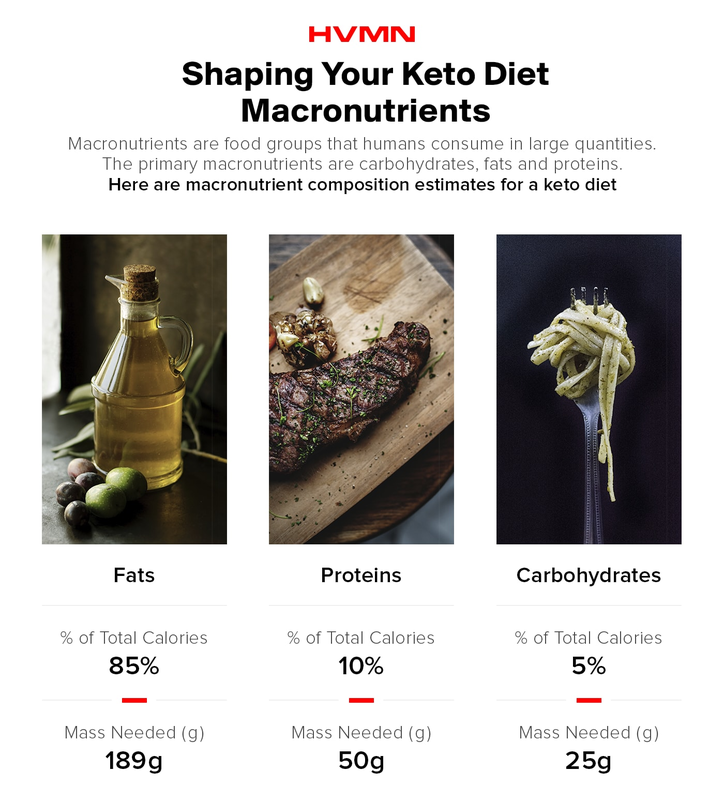Butter in Coffee: Benefits, Uses, and Recipes
2.08K
0
·
2019/10/18
·
14 mins read
☕
WriterShelf™ is a unique multiple pen name blogging and forum platform. Protect relationships and your privacy. Take your writing in new directions. ** Join WriterShelf**
WriterShelf™ is an open writing platform. The views, information and opinions in this article are those of the author.
Article info
Categories:
⟩
⟩
Tags:
Date:
Published: 2019/10/18 - Updated: 2020/01/24
Total: 3312 words
Like
or Dislike
More from this author
More to explore











Originally published on HVMN by Ryan Rodal
Butter in coffee may seem weird at first. But people everywhere have been praising the benefits of butter coffee. A drink combining the quick boost of caffeine with the sustained slow release of energy from butter—who could possibly resist this tandem?
Many struggle with drinking black coffee due to its bitter aftertaste. So you might add creamer or sugar. But for someone on a keto diet, those are both a no-no. Finally, for those practicing a ketogenic diet, a solution has emerged.
Table of Contents
Bulletproof Coffee vs. Butter Coffee
Bulletproof Coffee
Butter Coffee
Benefits of Butter Coffee
Is Butter in Coffee Healthy?
Benefits of Coffee Alone
Improves Satiety
Helps Improve Weight Loss on Keto
Improves Cognitive Function
Tastes Better Than Black Coffee
Types of Butter or Oil to Add to Your Coffee
Coconut Oil
MCT Oil
Grass-Fed Butter
Butter Coffee Recipes
Traditional Butter Coffee
Creamy Butter Coffee
Should You Try Butter Coffee?
In recent years butter coffee has become a popular drink choice among both keto dieters and the general population. Instead of consuming traditional creamers high in sugar and carbohydrates, coffee drinkers can now enjoy flavorful coffee while staying in ketosis.
Combining butter and coffee sounds simple enough, right? Just throw a stick of butter into a piping hot cup of coffee, and there you go. But there’s actually much more to it. There are several different methods to create your own butter coffee.
Somewhat oddly for a drink dripping with fat, butter coffee has been touted as a tool for weight loss. That said, don’t think simply throwing oil in your cup of joe will make the pounds melt away.
Butter coffee (sometimes called keto coffee) is not a miracle solution to induce weight loss, but rather an effective dieting tool to use when incorporated as part of a total nutritional strategy.
Want a keto-friendly coffee alternative without sugar-based creamers? Then butter coffee is a great option. First up we will demystify what’s in the cup, then we will take a look at the various ways to create butter coffee and all its benefits.
Bulletproof Coffee vs. Butter Coffee
Some people may confuse or mislabel the terms "butter coffee" and "Bulletproof coffee." While the two have some overlapping characteristics, they are not one in the same.
Bulletproof Coffee
Bulletproof coffee is a trademarked beverage originally created by American entrepreneur Dave Asprey. The beverage is the cornerstone of his Bulletproof diet, which recommends consumption of fatty foods along with low carbohydrate intake. It’s a type of ketogenic diet, but with more of an emphasis on vegetables. All fine, but Asprey has taken some criticism with people labelling his diet as unscientific due to his lack of medical or nutritional education.
While traveling through Tibet, Asprey was inspired to make Bulletproof coffee after consuming various teas made with yak butter. He claims Bulletproof coffee boosted his IQ score by 20 points and has enhanced his focus and weight loss.
The recommended way to make Bulletproof coffee is to brew hot coffee and blend in 1 - 2 tablespoons of unsalted, grass-fed butter and 1 - 2 tablespoons of MCT oil.
Butter Coffee
While Bulletproof coffee is a specific brand name, butter coffee is a more general term. Think Coca Cola vs. soda.
You can make butter coffee by blending or mixing different butters and/or oils into coffee.
Some of the most common butters or oils to add to coffee are:
Coconut oil
Pure MCT oil
Grass-fed butter
There are no strict rules for making butter coffee. Try various butters and oils to see which you enjoy the most.
Your guide to keto-friendly beverages
Subscribe to get our guide to the best keto-approved drinks
Benefits of Butter Coffee
Drinking butter coffee is promoted as having a wide range of health benefits, from improved cognitive function to increased weight loss. For the most part, the scientific evidence is too early to say for sure how much of an effect there is, but there are enough positive results that you should check it out and assess your individual response.
Is Butter in Coffee Healthy?
Butter coffee has become a popular way of preparing morning brew; but are there any downsides?
The Bulletproof method of preparing coffee may not be the correct choice for every individual.
If you want to lose weight, you should aim to stay on top of your calorie intake. It’s easy to rack up calories adding fat into your coffee. If you are trying to stay within certain macronutrient ranges, be sure to measure the caloric values of all oils or butters added to the coffee.
Simply placing butter into coffee will not result in rapid weight loss alone. Make sure that you incorporate butter coffee as part of a holistic nutrition strategy in order to get the best results.
Benefits of Coffee Alone
Before we deep dive into butter coffee, let’s take a look at some of the benefits of drinking coffee by itself.
One of the main reasons people drink coffee is the boost from caffeine. Let’s face it—would your morning cup of coffee have quite the same allure if it was decaffeinated? Because of our worldwide love affair with caffeine, regular full-strength coffee is brewed around the clock.
Caffeine is one of the most widely used physical and cognitive performance enhancing substances around the world.
For most people the beneficial range of caffeine consumption is 38mg - 400mg per day.1 This provides optimal energy levels with few downsides.
Another benefit of caffeine is increased fat loss capabilities. Studies have shown caffeine improves weight maintenance through thermogenesis and fat oxidation.2 This is one of the reasons many fat loss supplements contain caffeine.
When you combine coffee with other powerful ingredients, the benefits can increase exponentially.
Improves Satiety
For people following a keto diet, consuming sufficient slow-release energy from fat is one of the most crucial elements of feeling full. Adding oil and butter to your coffee can ensure fat intake stays high.
If you’re like most people, morning hunger pangs are a common distractor as you try and focus and be productive. Butter coffee may be just the tool to help. Adding butter and oil to your coffee may aid in satiety compared to coffee alone. Studies have shown increased dietary fat can improve satiety through the regulation of appetite with the release of appetite hormones.3
If you’re struggling with feelings of hunger during a diet, swapping out the spikes of energy from sugar for steady energy from fat is one way to keep you feeling full.
Helps Improve Weight Loss on Keto
Butter coffee fits perfectly within a keto diet strategy.
Consuming MCT oils in the morning may help stabilize blood sugar and enhance the production of ketones.4
Butter coffee can boost your metabolism while simultaneously helping the body get into a fat-burning state.
Because these beverages are often free of net carbs and contain a high amount of fat, consuming MCT oils or powders may help switch the body into fat-burning mode. If you make butter coffee at home, you can ensure no carbs sneak in. Double check any pre-made fat-infused coffee products to ensure no additional carbs have been added.
Studies have shown the quality of fat intake can play a role in fat loss.5 Not all sources of fat are equal when it comes to weight loss. MCTs have been shown to be a superior fat source when it comes to overall fat loss due to their ability to be processed directly by the liver, placing little to no strain on the digestive system.
Improves Cognitive Function
We already know drinking coffee alone can improve brain function and assist with focus, thanks to the caffeine. Butter coffee may be able to further increase cognitive benefits.
One of the main ingredients in butter coffee is medium-chain triglyceride oil, better known as MCT oil. In studies performed on people taking MCTs, cognition improved along with brain function.6
If you combine the cognitive effects of traditional coffee along with MCT oil or powders, the duo may provide better brain enhancing benefits than previously realized.
Sometimes, a cup of coffee isn’t always the answer. Maybe you need the energy without the jitters. Try Sprint, H.V.M.N.’s nootropic for focus and energy. Made with caffeine and L-theanine, Sprint is a nootropic stack designed to promote alertness, focus, and relaxation. It can help improve attention, provide jitter-free energy and decrease fatigue to keep your mind on its toes.7, 8, 9
Tastes Better Than Black Coffee
Coffee is a regular feature in many people's lives, keto or not. The high fat content of butter coffee can mellow out the aggressiveness of black coffee, as well as help you out with your keto goals. Butter coffee may be an amazing high-fat alternative that plays a role in the keto diet, while curbing the aggressiveness of black coffee.
Adding butter and MCT oil or powder to your coffee not only helps maintain ketosis, it improves the flavor as well. Instead of gulping down hot bitter coffee to get through the day, butter coffee will soften the overpowering taste, especially when the MCTs are flavored. But watch out. Some flavored MCT oils or powders contain sweeteners or artificial ingredients. That's why we've made H.V.M.N.'s MCT Oil Powder with zero net-carbs and all natural flavors (like vanilla and chocolate) to help you stick to your keto goals.
Butter can make coffee more palatable to many people. Try different butter / oil to coffee ratios to concoct your perfect morning beverage.
Types of Butter or Oil to Add to Your Coffee
If you’re looking to incorporate butter coffee into your daily routine, there’s more than one way of doing it. Most butter coffee recipes call for a combination of MCT oil or powder, or coconut oil along with grass-fed butter.
Try experimenting with different combinations to see which one works best for you.
Coconut Oil
Once upon a time, coconut oil was known mostly for its skin health benefits. People used the oil as a natural form of sunscreen and tanning enhancer.
Today, the uses for coconut oil are more diverse. Many people choose to employ coconut oil for cooking or baking, but others are now using it in their coffee. From a consumption standpoint, coconut oil is beneficial because it contains medium chain triglycerides (MCTs). About half of the fatty acids in coconut oil are MCTs.
One of the benefits of coconut oil is a potentially reduced risk of heart disease.
In studies performed on women, those consuming high-fat, coconut oil-based diets had reduced inflammation and a decreased risk of heart disease compared to other groups.10 Of course, heart disease is caused by a complex set of factors.
Another benefit of coconut oil may be increased weight loss. In studies performed on obese patients, virgin coconut oil was found to reduce waist circumference.11
Coconut oil may also improve the quality of life in individuals undergoing chemotherapy. In observational studies performed on 60 women with breast cancer, those taking 20ml of virgin coconut oil daily had improved markers in quality of life, lessened fatigue, improved sleep, and better sexual function.12
Due to it’s high caloric content, coconut oil may not work with the diets of some people who need to heavily restrict calories. Although coconut oil has several health benefits, it may not be the best option.
MCT Oil
Why not skip the coconut oil and go straight to the source of its benefits? Coconut oil only contains 50% MCTs. If you truly want to maximize your health benefits, try 100% MCT oils or powders.
MCTs are known as efficient forms of saturated fats for energy production.
They are absorbed quickly in the body and metabolized into energy in the liver, readily converted into ketones. They’re a high-fat source of fuel that can provide long-lasting energy throughout the day.
If you’re practicing a keto diet, you should consider MCT-based products such as H.V.M.N.'s MCT Oil Powder. It contains pure C8—the world’s most high-quality, ketogenic fat. It’s also made with acacia fiber which is a gut-friendly prebiotic. With zero net carbs, its a quick and efficient way of upgrading your coffee to help reduce cravings and jumpstart your metabolism.
Some of the benefits of MCTs include:
Quickly converted to ketones: You know the benefits of ketosis; so why not get there faster? If you’re following a ketogenic diet, MCTs can help boost ketone production in the liver. If you’re striving to get into ketosis quicker, taking MCTs may help.
Improves weight loss: Studies have shown MCT oils can raise your metabolic rate leading to improved weight loss.13
Increases cognitive function: MCT oil directly supports brain function. Supplementing with MCTs can help produce higher ketone levels and can improve memory when taken regularly.6
May help prevent cardiovascular health markers: A study performed on people taking MCTs for eight weeks resulted in a decrease of bad cholesterol (LDL) by 14.54%.14 Lowering bad cholesterol can help lower the risk of long term heart disease.
Can help treat diabetes: Consuming MCTs may improve insulin sensitivity, a key factor in preventing and managing diabetes.15 Aside from insulin response, MCTs will increase the rate of blood ketone production and may help minimize diabetic symptoms.
MCTs have been extremely popular for people on the ketogenic diet for all of these reasons. They’re a source of healthy fats that spur ketone production, while helping energize both your brain and body.
Try adding MCT Oil Powder from H.V.M.N. into your daily coffee routine for fast and sustained ketosis. Plus, the delicious vanilla and chocolate flavors have zero net carbs and zero sugar, important considerations for keto dieters.
Grass-Fed Butter
Strictly adding MCTs to your coffee doesn’t necessarily make it butter coffee. Along with MCT oil or powder, most butter coffee recipes also call for grass-fed butter.
Pretty self explanatory, but grass-fed butter is made from the milk of cows that forage and graze for their own fresh food. Compared to butter made from grain-fed cows, grass-fed butter is a healthier option due to it’s higher Omega-3 and vitamin K content. Foods rich in Omega 3 fatty acids can provide cardiovascular benefits.16
There are several other positives to consuming grass-fed butter. As a rich source of conjugated linoleic acid (CLA), it may boost fat loss.17 Foods containing CLA also may help play a role in the prevention of cancer.18
Next time you want to make butter coffee, try to use grass-fed varieties if possible.
Butter Coffee Recipes
If you’re searching for a new butter coffee to add to your every morning routine, we have just the recipes for you.
Traditional Butter Coffee
Ingredients:
1 cup of coffee
1 tbsp Kerrygold unsalted grass-fed butter
1 scoop H.V.M.N. MCT Oil Powder
Instructions:
Brew a cup of coffee using your favorite coffee beans. We prefer using a French press to give our coffee a bolder taste.
Add fresh coffee, H.V.M.N. MCT Oil Powder, and butter into a blender and blend for approximately 10 seconds.
Pour the finished result into a mug and enjoy.
Creamy Butter Coffee
Ingredients:
1 cup of coffee
2 tablespoons unsweetened almond milk or heavy cream
1 tablespoon MCT oil
1 tbsp organic grass-fed unsalted butter
Instructions:
Combine all ingredients in a blender until foam-like consistency is reached.
Once the texture is to your liking, drink and enjoy.
Once you begin making these recipes every morning, you’ll soon forget you ever went to Starbucks for your morning cup of joe.
Should You Try Butter Coffee?
Conceptually, butter coffee is simple; it’s three ingredients—coffee, coconut oil or MCT, and grass-fed butter. By combining these three elements you can create a concoction that may be capable of improving memory and jumpstarting fat loss.
Butter coffee may also play a valuable role in helping you reach a deeper level of ketosis. If you struggle with satiety, butter coffee will also keep you feeling full for longer periods of time compared to traditional coffee.
Although butter coffee alone will not lead to weight loss, it can be a useful tool in conjunction with the ketogenic diet. One thing to remember is to look out for is total caloric intake. Measuring the caloric values of oils and butters will ensure you stay within your daily dietary goals.
Hitting those goals is like embarking on a new challenge every single day. Consider adding butter coffee to the mix, making it part of your ritual for improved mental clarity, physical and metabolic performance.
Want the best keto diet menu?
Our menu accounts for everything from calories to macronutrients. Sign up now to receive this exclusive menu from keto diet experts.
Scientific Citations
1.
Ruxton C.H.S. The impact of caffeine on mood, cognitive function, performance and hydration: a review of benefits and risks. British Nutrition Foundation. 2007; 33:15-25. doi:10.1111/j.1467-3010.2007.00665.x
2.
Harpaz E, Tamir S, Weinstein A, Weinstein Y. The effect of caffeine on energy balance. J Basic Clin Physiol Pharmacol. 2017;28(1):1-10.
3.
Samra RA. Fats and Satiety. In: Fat Detection: Taste, Texture, and Post Ingestive Effects. 1st ed. Boca Raton, FL: Taylor & Francis Group, LLC; 2010: Chapter 15.
4.
Vandenberghe, C., St-Pierre, V., Pierotti, T., Fortier, M., Castellano, C.-A., and Cunnane, S.C. (2017). Tricaprylin Alone Increases Plasma Ketone Response More Than Coconut Oil or Other Medium-Chain Triglycerides: An Acute Crossover Study in Healthy Adults. Current Developments in Nutrition 1.
5.
St-onge MP, Bosarge A. Weight-loss diet that includes consumption of medium-chain triacylglycerol oil leads to a greater rate of weight and fat mass loss than does olive oil. Am J Clin Nutr. 2008;87(3):621-6.
6.
Page, K.A., Williamson, A., Yu, N., McNay, E.C., Dzuira, J., McCrimmon, R.J., and Sherwin, R.S. (2009). Medium-chain fatty acids improve cognitive function in intensively treated type 1 diabetic patients and support in vitro synaptic transmission during acute hypoglycemia. Diabetes 58, 1237-44.
7.
Camfield DA, Stough C, Farrimond J, Scholey AB. Acute effects of tea constituents L-theanine, caffeine, and epigallocatechin gallate on cognitive function and mood: a systematic review and meta-analysis. Nutrition reviews. 2014; 72(8):507-22.
8.
Ellis JM, Reddy P. Effects of Panax ginseng on quality of life. Ann Pharmacother. 2002;36(3):375-9.
9.
Reay JL, Scholey AB, Kennedy DO. Panax ginseng (G115) improves aspects of working memory performance and subjective ratings of calmness in healthy young adults. Hum Psychopharmacol. 2010;25(6):462-71.
10.
Müller H, Lindman AS, Blomfeldt A, Seljeflot I, Pedersen JI. A diet rich in coconut oil reduces diurnal postprandial variations in circulating tissue plasminogen activator antigen and fasting lipoprotein (a) compared with a diet rich in unsaturated fat in women. J Nutr. 2003;133(11):3422-7.
11.
Liau KM, Lee YY, Chen CK, Rasool AH. An open-label pilot study to assess the efficacy and safety of virgin coconut oil in reducing visceral adiposity. ISRN Pharmacol. 2011;2011:949686.
12.
Law KS, Azman N, Omar EA, et al. The effects of virgin coconut oil (VCO) as supplementation on quality of life (QOL) among breast cancer patients. Lipids Health Dis. 2014;13:139.
13.
St-onge MP, Bosarge A. Weight-loss diet that includes consumption of medium-chain triacylglycerol oil leads to a greater rate of weight and fat mass loss than does olive oil. Am J Clin Nutr. 2008;87(3):621-6.
14.
Xue C, Liu Y, Wang J, et al. Consumption of medium- and long-chain triacylglycerols decreases body fat and blood triglyceride in Chinese hypertriglyceridemic subjects. Eur J Clin Nutr. 2009;63(7):879-86.
15.
Eckel RH, Hanson AS, Chen AY, Berman JN, Yost TJ, Brass EP. Dietary substitution of medium-chain triglycerides improves insulin-mediated glucose metabolism in NIDDM subjects. Diabetes. 1992;41(5):641-7.
16.
Swanson D, Block R, Mousa SA. Omega-3 fatty acids EPA and DHA: health benefits throughout life. Adv Nutr. 2012;3(1):1-7.
17.
Whigham LD, Watras AC, Schoeller DA. Efficacy of conjugated linoleic acid for reducing fat mass: a meta-analysis in humans. Am J Clin Nutr. 2007;85(5):1203-11.
18.
Lee KW, Lee HJ, Cho HY, Kim YJ. Role of the conjugated linoleic acid in the prevention of cancer. Crit Rev Food Sci Nutr. 2005;45(2):135-44.